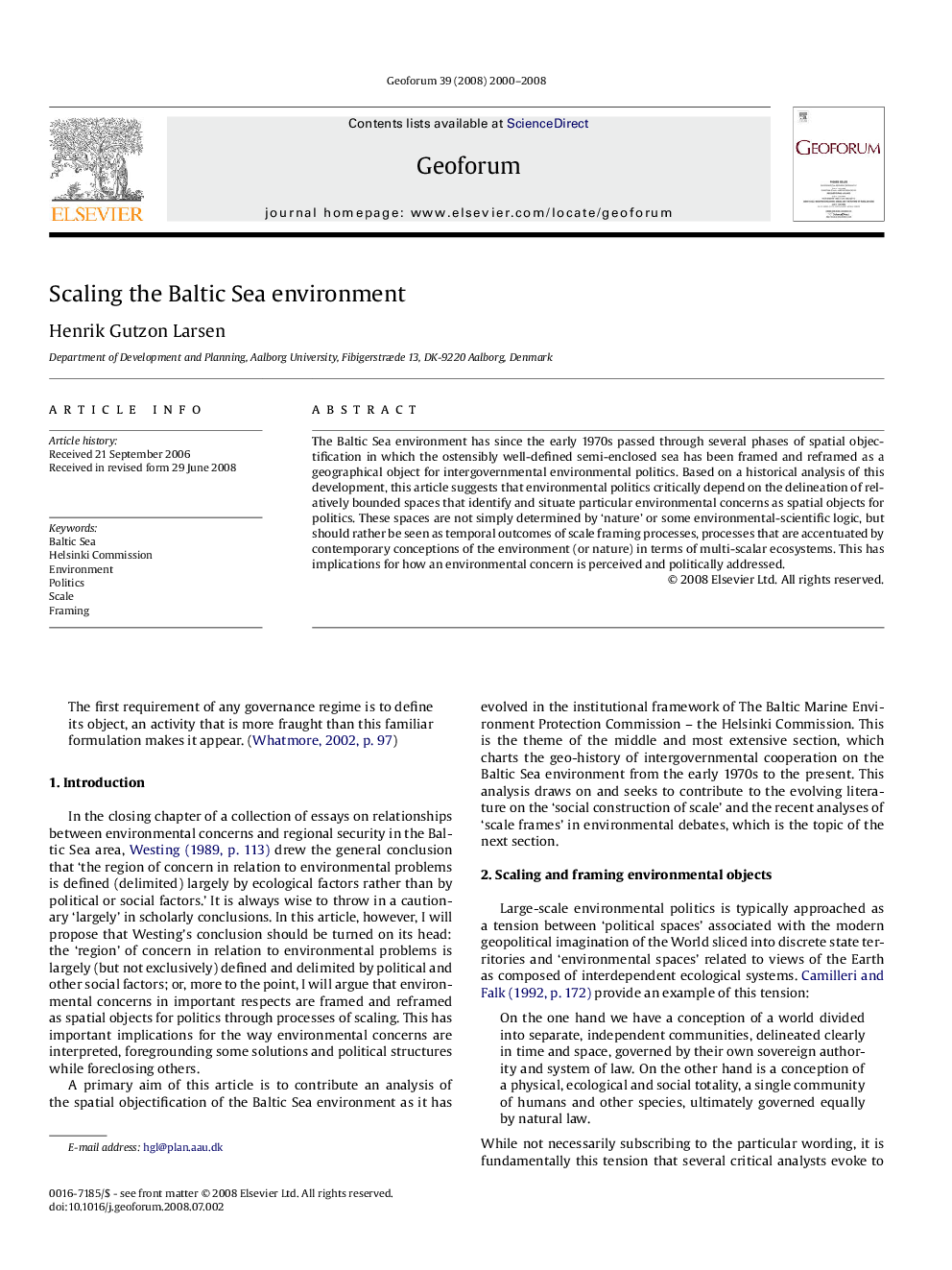| Article ID | Journal | Published Year | Pages | File Type |
|---|---|---|---|---|
| 5074850 | Geoforum | 2008 | 9 Pages |
Abstract
The Baltic Sea environment has since the early 1970s passed through several phases of spatial objectification in which the ostensibly well-defined semi-enclosed sea has been framed and reframed as a geographical object for intergovernmental environmental politics. Based on a historical analysis of this development, this article suggests that environmental politics critically depend on the delineation of relatively bounded spaces that identify and situate particular environmental concerns as spatial objects for politics. These spaces are not simply determined by 'nature' or some environmental-scientific logic, but should rather be seen as temporal outcomes of scale framing processes, processes that are accentuated by contemporary conceptions of the environment (or nature) in terms of multi-scalar ecosystems. This has implications for how an environmental concern is perceived and politically addressed.
Related Topics
Social Sciences and Humanities
Economics, Econometrics and Finance
Economics and Econometrics
Authors
Henrik Gutzon Larsen,
